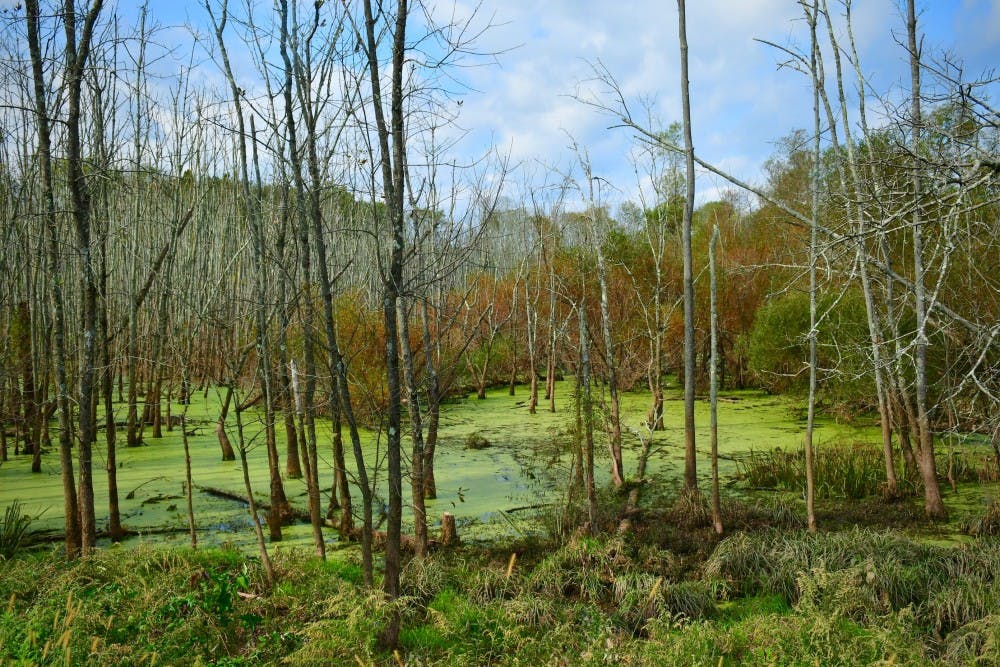Deforestation is one of the principal causes of climate change and forest fires alike, and, according to the predictions, it will only intensify.
Forest fires resulting from deforestation in the Amazon rain forest have recently garnered global attention, and this topic was even discussed in September’s U.S. presidential debate between Joe Biden and Donald Trump. Although news coverage of forest fires tends to focus on the Amazon, this is a global issue, affecting forests in many areas including the United States, Siberia, and many African countries, and one we should all pay attention to.
Have we already forgotten how the forests burned in the United States at the dry beginning of this summer? And how many more square kilometers are about to ignite? This is the second consecutive summer of drought that has punished the United States and South America’s rugged vegetation.
Given that this is a global issue, the question remains: why is there so much attention on the Amazon? And why are Latin American presidents, like Brazil’s president, Jair Messias Bolsonaro, often painted as responsible? Is this really fair?
As a Brazilian myself, I will try to clarify this matter a bit.
The gravity of the situation in the Amazon does indeed warrant the attention it has received, but the reasons behind this situation are more complex than commonly imagined. The Amazon rain forest serves as a vital resource as it produces immense amounts of water for the rest of Brazil and South America. Thus, preserving the Amazon is essential for agribusiness and food production for countries around the globe.
However, deforestation in the Amazon is incentivized. Beef and soy for cattle fattening are the main agricultural exports in these countries, especially in Brazil, and each new hectare of agricultural land means one less hectare of tropical forest. Considering the world population’s massive meat consumption, it is economically advantageous to continue practices of deforestation. In addition, the economic crisis that started in Latin America in 2014 has led many policy makers to withdraw resources from their budgets which were previously allocated to fire prevention and deforestation.
Thus, while the environmentally hostile policies of some Latin American presidents are partly responsible for continued deforestation, we should be wary of placing the blame entirely on them — wider global factors must be considered, including the world's growing demand for cheaper meat. This should also serve as a reminder that many outside Brazil are complicit in the causes of deforestation as well.

So how should we address this issue? Zeroing deforestation in the Amazon is difficult, but it is certainly possible to reduce it. Indeed, with the Biden administration’s focus on climate change, there is reason to be optimistic.
The Biden team has plans to join the international community in seeking to reduce deforestation in the Amazon. Biden’s commitment to making sure that the environment is factored into economic decisions will be key in doing so.
If Latin American countries want to avoid friction with the Biden administration over environmental issues, they will need to commit themselves to immediately reducing deforestation in the Amazon by at least 50 percent, bringing the deforested area per year to around 5,000 square kilometers, closest to the index seen six years ago.
Biden’s firm stance on this matter was encapsulated by his statement in the presidential debate when he said, “I would be right now organizing the hemisphere and the world to provide $20 billion for the Amazon, for Brazil no longer to burn the Amazon.”

Now that we understand the true complexities surrounding the reason for continuing deforestation in the Amazon and some possible solutions to the problem, what does that mean for us as Princeton students?
We must be aware that while identifying political leaders as the main perpetrators of climate change is understandable, it is also simplistic and a way of shifting responsibility from ourselves. We all, as Princeton students who have access to a vast array of information and have the ability to contribute through changing our lifestyle (for example, reducing our meat intake to once or twice a week), need to recognize that this problem is much closer to us than we think.
We should spread information about the causes of global deforestation through social media with those who are not as privileged and take steps to change our own lives. Supporting Greenpeace Brazil, SOS Amazônia, or WWF - Brasil would be a great way to get involved in this cause and make an actual impact.
This problem will only be resolved if we realize that change goes far beyond funding and economic sanctions; it relies, mainly, on ourselves.
Maria Luisa Parada is a rising member of the class of 2025 from São Paulo, Brazil. She can be reached at marialuisavieiraparada@gmail.com.








